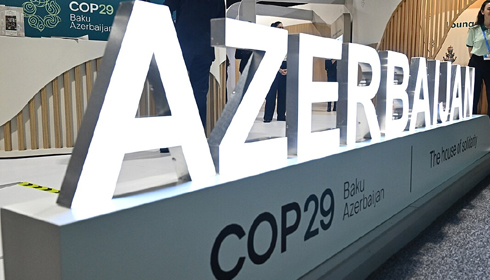
Guterres Urges COP29 Attendees to Act on Climate Emergency
In a critical call to action, the UN Secretary-General has emphasized the urgent need to address the climate crisis and its profound implications for global health. This plea comes as world leaders gather at COP29, where the stakes have never been higher for the future of our planet and its inhabitants.
At the opening of COP29 in Baku, Azerbaijan, UN Secretary-General António Guterres issued a critical warning regarding climate change, highlighting the severe global health crisis associated with the rising temperatures of our planet. As 2024 approaches and is poised to become the hottest year on record, Guterres emphasizes the significant impact of climate change, noting its role in transforming ecosystems and causing critical health challenges across the globe.
In a compelling address, Guterres urged urgent action to reduce global emissions, emphasizing that humanity faces a "final countdown" to keep temperature rises within the critical limit of 1.5 degrees Celsius. He outlined the consequences of weather events driven by climate change, highlighting record heat waves that lead to exhaustion and heat stroke, as well as hurricanes and floods that displace millions of people. Climate events are triggering health emergencies that exceed the capacity of many nations to respond, especially in areas where healthcare systems are already under significant pressure.
Extreme heat has emerged as a significant public health threat, particularly affecting vulnerable groups like outdoor workers and pilgrims, as highlighted by Guterres. As global temperatures continue to rise, the world is witnessing a surge in frequent and intense heat waves. This alarming trend brings with it serious repercussions, including a spike in heat-related illnesses, a rise in hospital admissions, and, tragically, an increase in fatalities. A trend of worsening heat and air quality is leading to a significant increase in respiratory and cardiovascular cases in hospitals across various regions. This situation highlights the urgent necessity for healthcare systems to adapt to the challenges posed by climate change.
“Families are fleeing for safety as another hurricane approaches, workers are succumbing to extreme heat, and children are going to bed hungry due to devastating droughts affecting crops,” Guterres stated, underscoring the widespread health impacts of climate change. Experts emphasize that these intensified disasters are largely a result of human activities disproportionately impacting the most vulnerable communities.
Unpredictable climate patterns and drought are intensifying the pressing issue of food insecurity, leading to a rise in malnutrition and hunger worldwide, as Guterres highlighted. Prolonged droughts and extreme weather events have led to significant crop failures, resulting in record high food prices. This situation is exerting considerable pressure on families and national economies alike. The alarming increase in food insecurity is leading to the emergence of a range of health issues, including malnutrition, developmental challenges in children, and compromised immune systems, all of which heighten the vulnerability of populations to disease outbreaks.
The speech highlighted a critical issue: the disparities in the effects of climate change. A narrative of preventable injustice unfolds, highlighting how affluent nations are the primary contributors to global emissions, while it is the poorer countries that endure the harshest repercussions, including significant health crises. Developing nations, constrained by limited resources, face significant challenges as they bear the brunt of climate-induced health crises. Numerous communities face significant challenges as they lack adequate funding and infrastructure to safeguard their populations against the escalating impacts of climate change. This includes the rise of disease outbreaks associated with vector-borne illnesses such as malaria and dengue, which are proliferating as a result of shifting temperature and precipitation patterns.
The Secretary-General called on COP29 participants to take decisive action in addressing the climate finance gap, highlighting the stark contrast faced by developing nations in what he termed “a tale of two transitions.” He urged for a significant boost in concessional public finance, the exploration of innovative funding sources, and the implementation of reforms to enhance the accessibility and effectiveness of climate financing. In a critical call to action regarding the intersection of health and climate change, he underscored the urgent necessity for investments in early warning systems and climate-resilient healthcare. He emphasized that an alert system must protect every person on Earth by 2027.
In conclusion, Guterres emphasised that climate finance should be viewed not as charity but as a crucial investment in the shared future of humanity. His plea underscores a mounting agreement among scientists, activists, and leaders that immediate climate action is essential; otherwise, the health repercussions of a warming planet may escalate into a humanitarian crisis.
Global attention is on the leaders as the summit progresses, urging them to act decisively and enact transformative policies to protect public health from the threats posed by unrestrained climate change.